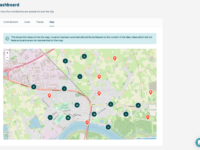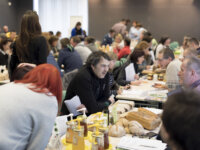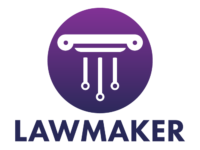Employment and Social Development Canada (ESDC) led the design and implementation of a national poverty reduction strategy public engagement process. We offered Canadians multiple ways to share their views, from public town hall events to online discussions, to a youth contest, to an in-depth research project. The engagement process successfully reached thousands of Canadians in a short time frame on a low budget. The plan is now used as a Government of Canada model for effective civic…
Innovation Tag: Communication
Originally conceived as a planning tool, HeritageMaps.ie is a user-driven, web-based mapviewer focusing on the built, cultural and natural heritage around Ireland and offshore. Its potential for use by the general public was quickly realised and users can now access 700+ up-to-date heritage datasets in map-form, originally provided across many Govt. platforms. HeritageMaps.ie a free ‘one-stop-shop’ for heritage data and acts as a discovery portal, providing direct links to promote research.
The integration of health and social care was seen by the Scottish government to require support to ensure that benefits of both national and local data and knowledge were able to be shared across two very different cultures and service providers to jointly develop more appropriate services for local populations.
LIST using their expertise in analytical work was seen as a way to develop a sound evidence base to allow decision makers to develop effective services.
In order to rebuild the relationship between the administration and its stakeholders, the Chamber of Commerce of the Italian city of Cosenza has initiated project #OpenCameraCosenza. To achieve this objective, #OpenCameraConsenza rearranged the organizational and communication structures and together with the legal representative, the communications team used different tools to reach the administration's stakeholders: Facebook, Twitter, Instagram, Aurasma app, Qr-codes and the website.
The Exchange was developed to raise awareness in tourism industry on the importance of serving local food and drinks even in urban destinations (Ljubljana). The project objective is to positively affect the living standard of local farmers whereby quality and quantity of local food in hotels and restaurants will increase. With this project, Ljubljana has successfully and uniquely linked tourism sector and local agriculture to bolster sustainable economic growth and create new opportunities.
Case Study
Speak up via WhatsApp: A Qualitative WhatsApp Survey of Syrian Refugees and Lebanese Host…

The United Nations Development Programme Lebanon used WhatsApp to conduct qualitiative surveys to listen to Syrian refugees in Lebanon dealing with conflicts with the local Lebanese community. Using Whatsapp is an effective tool for collecting qualitative data from vulnerable communities at scale. WhatsApp is widely used, with 84% of refugee households in Lebanon on WhatsApp. WhatsApp's voice message function allowed us to send survey questions as voice messages and collect people’s stories…
The Northern Ireland (NI) Public Sector Innovation Lab has organised a hackathon, “Hack the Pain,” to address these needs of an underserved group: people with persistent pain. These individuals need for better information services for self-management, and the projects that emerged from the hackathon include a virtual reality app for mindfulness, a pain tracking app and a website of information on pain management techniques.
LawMaker is a lobby for the lobbyless – a free advocacy tool for those of us who don’t have a professional working for them to influence our governments. LawMaker allows Americans to (1) crowdsource ideas for new laws, (2) build voter coalitions, and (3) engage politicians to advocate for change. Our mission is to democratize democracies by empowering the creation of new laws that originate from real people at the grassroots, instead of from lobbyists and wealthy special interests.
Case Study
Unlocking the potential of crowdsourcing for public decision-making with artificial intelligence

In citizen participation projects, analysing contributions is often a huge challenge for administrations.
CitizenLab has developed machine-learning algorithms in order to help civil servants easily process thousands of citizen contributions and efficiently use these insights in decision-making.
The dashboards on our platform classify ideas, show what topics are emerging, summarise trends and cluster similar contributions by theme, demographic trait or location.
The Artech project invites artists, entrepreneurs, and developers to use public data as a "raw material" for works of art based on traditional arts or digital media. Being a well-known and respectable medium to broad audiences, we see art, as an original and fresh way to expose new audiences to the importance of open data and its relevance. This is the first time that a government agency in Israel has directly sponsored a creative and innovative experience of this kind.


